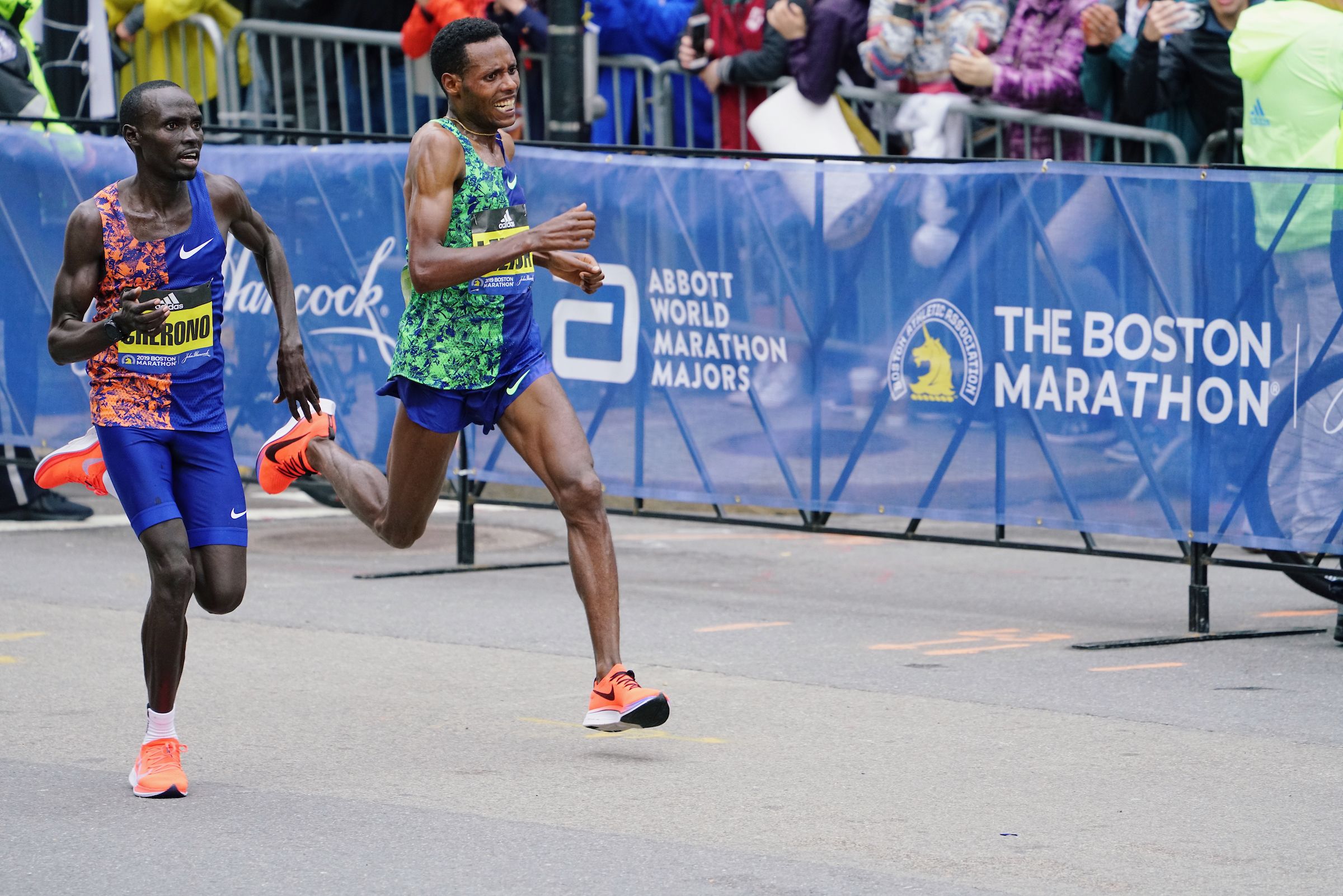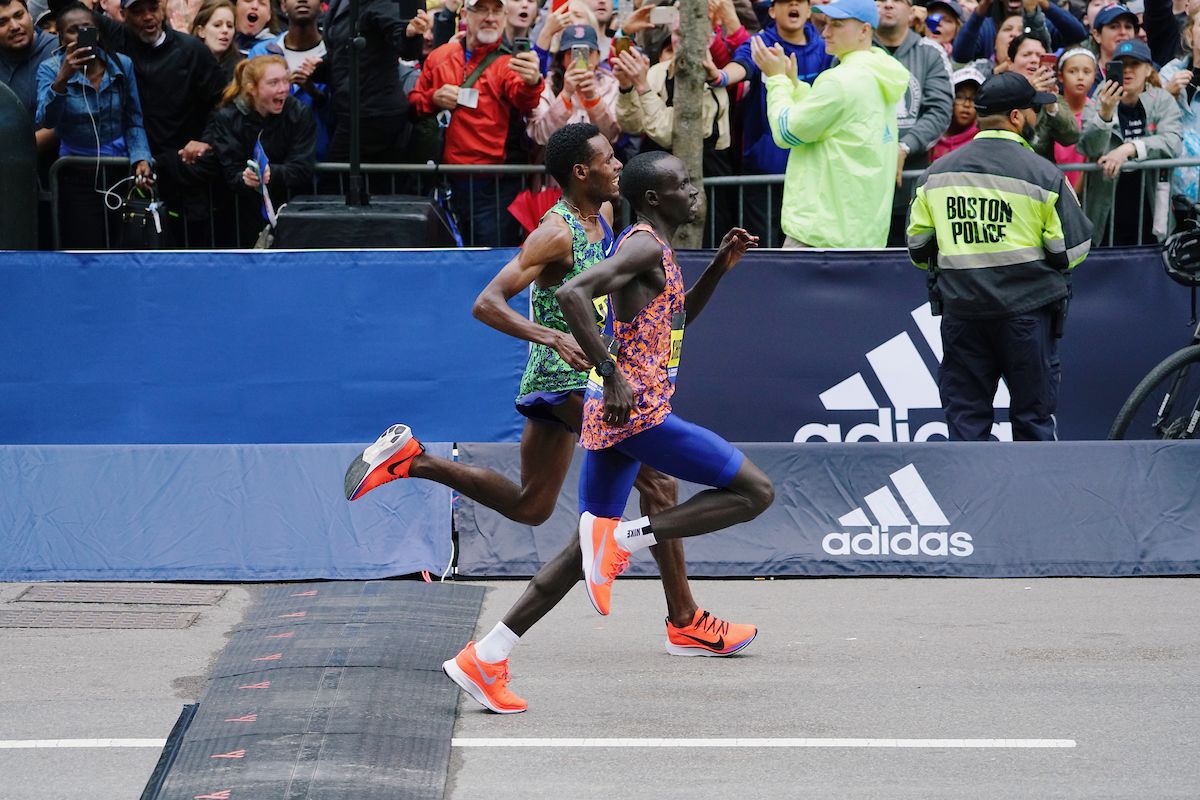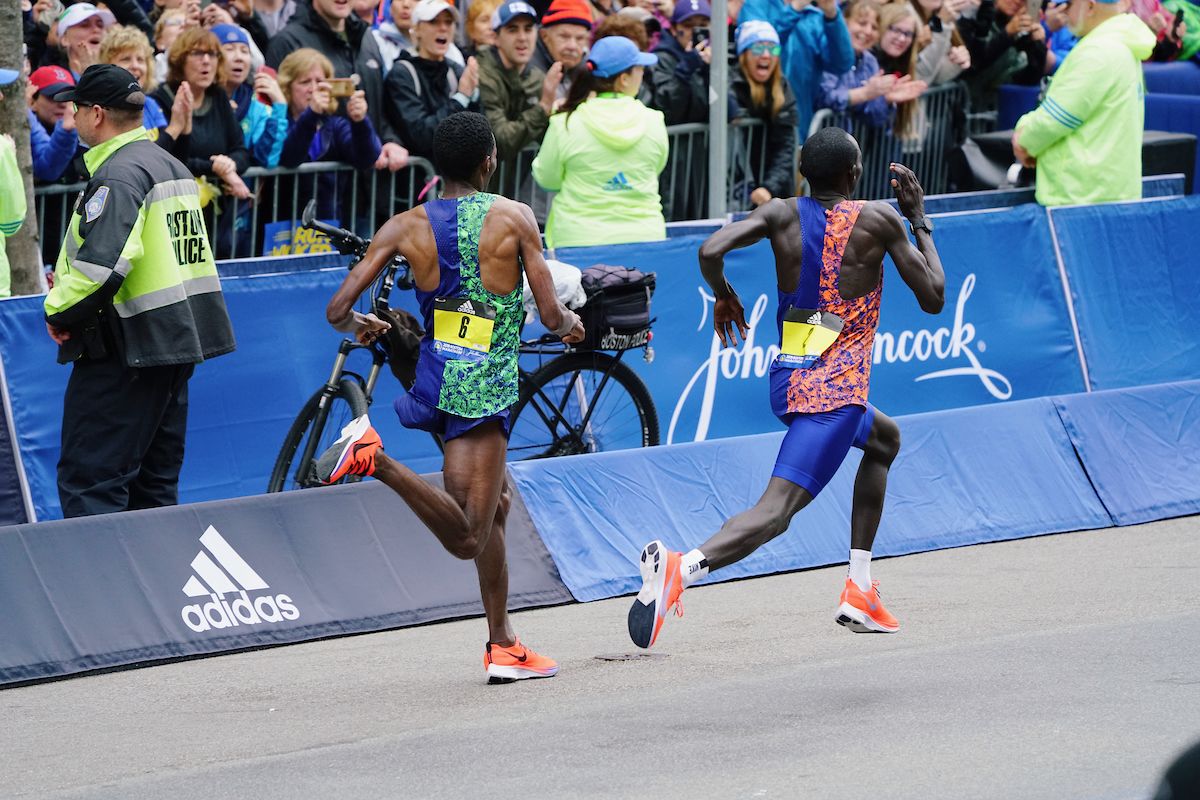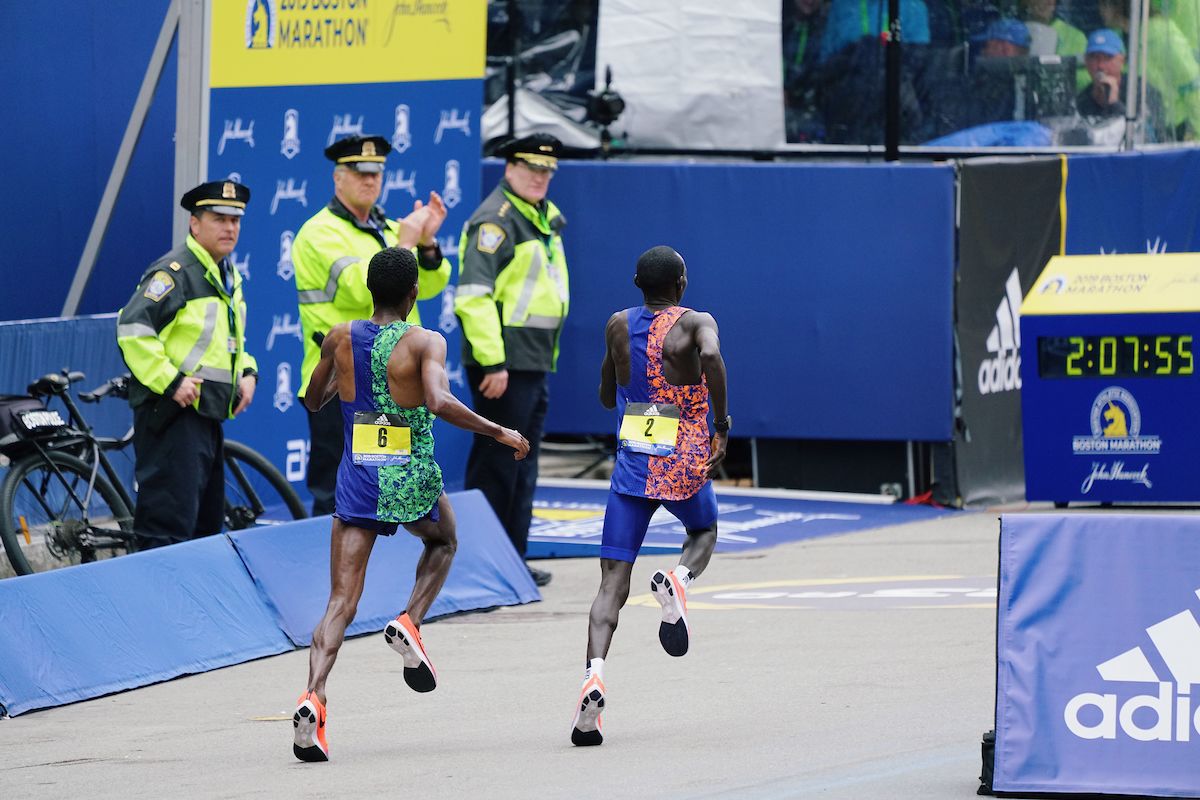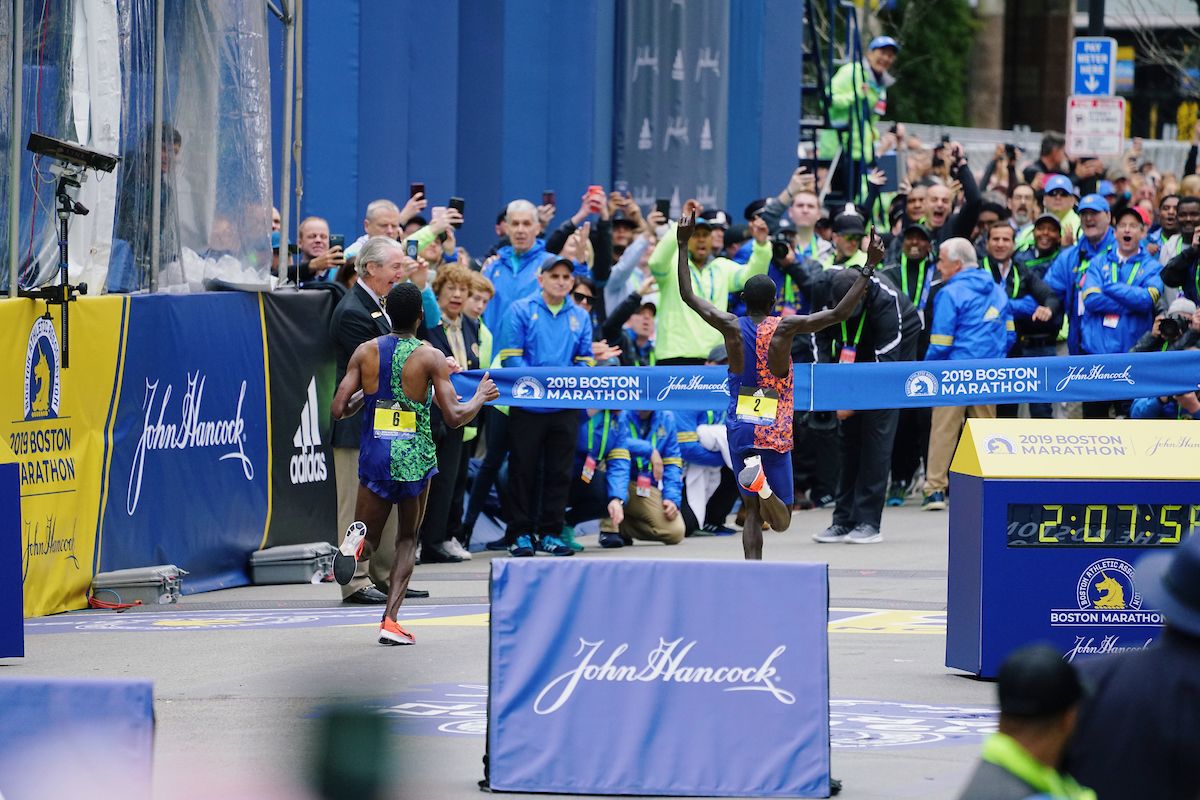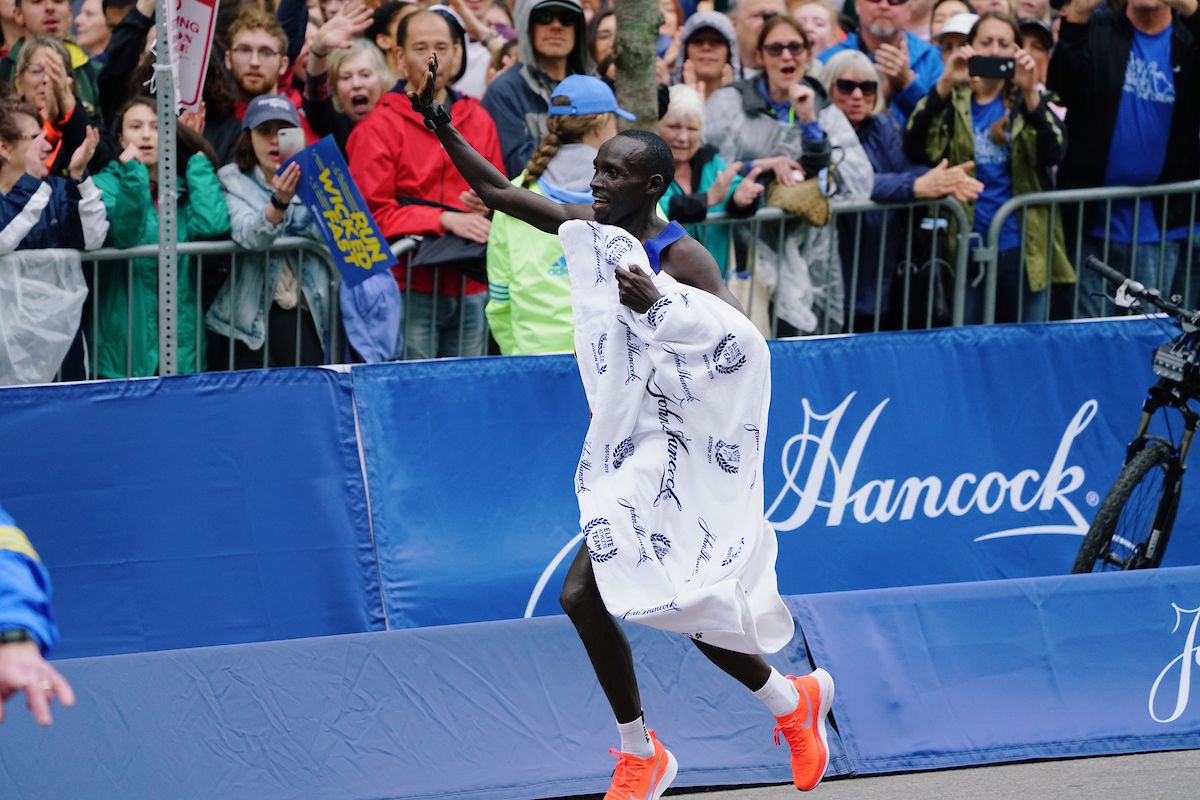The Majors moments of 2019
A look back at the defining moments
of the last year
Keep scrolling down
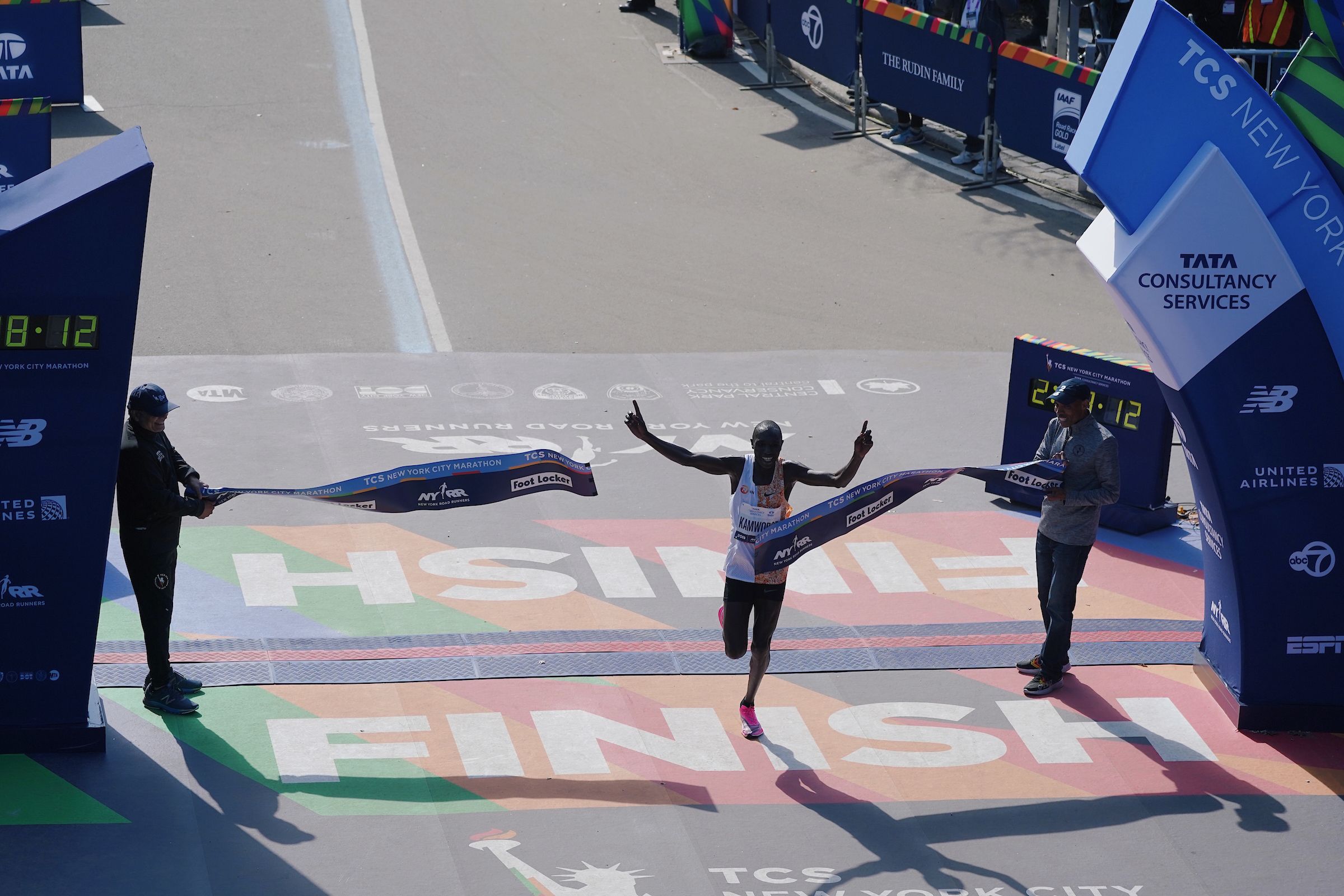
1. Bekele’s Berlin performance
Sport loves a comeback - those moments when a written-off, one-time superstar revisits their former glory against all odds and opinions. The story of triumph over adversity is one of any fan’s favourite fairytales.
The talk in the week before the 2019 BMW BERLIN-MARATHON was that if Kenenisa Bekele had finally got himself right; if he had finally had an uninterrupted, injury-free training camp, there was still something special left in those 37-year-old legs.
And boy, did he produce something special. This was a man who had DNF’d in three of his previous five marathon starts. A man whose last finish in a marathon was 2:08:53 in London 2018.
And in the late miles on Berlin’s streets in 2019, it seemed as though the years, the injuries and the churning legs of the younger men he was up against were going to make it another disappointing day.
Then Kenenisa Bekele found his second wind.
Having been cut adrift by a surge from Birhanu Legese, he had also slipped behind another of his countrymen, Sissay Lemma. But Bekele was still setting a fierce pace.
He quickly reeled in Lemma, but still had a 13-second gap to bridge to Legese at the 35km mark.
Suddenly, the reigning Tokyo champion began to pay for his earlier lung-bursting efforts to blow the race apart, and the elastic between him and Bekele, that looked to have snapped a few miles ago, suddenly became tight once again.
Bekele hauled his man in before he could reach the Brandenburg Gate.
It then became Bekele vs. the clock. He willed himself forward, frantically looking at his wristwatch as the seconds slipped by, gritting his teeth for an effort that couldn’t carry him to a world record. Could it?
In the end, he fell two seconds short of Eliud Kipchoge’s time, visibly grimacing at the finish as notions of what might have been flashed through his mind.
If he did not find a moment somewhere in the hysteria to reflect on that fact that he, a runner deemed past his sell by date – had just run the second fastest time in history and only the second time ever clocked under 2:02:00, let us do it for him now.
Kenenisa Bekele was back, and better than ever.
2. Manuela's sensational seven
Schär completes the slam
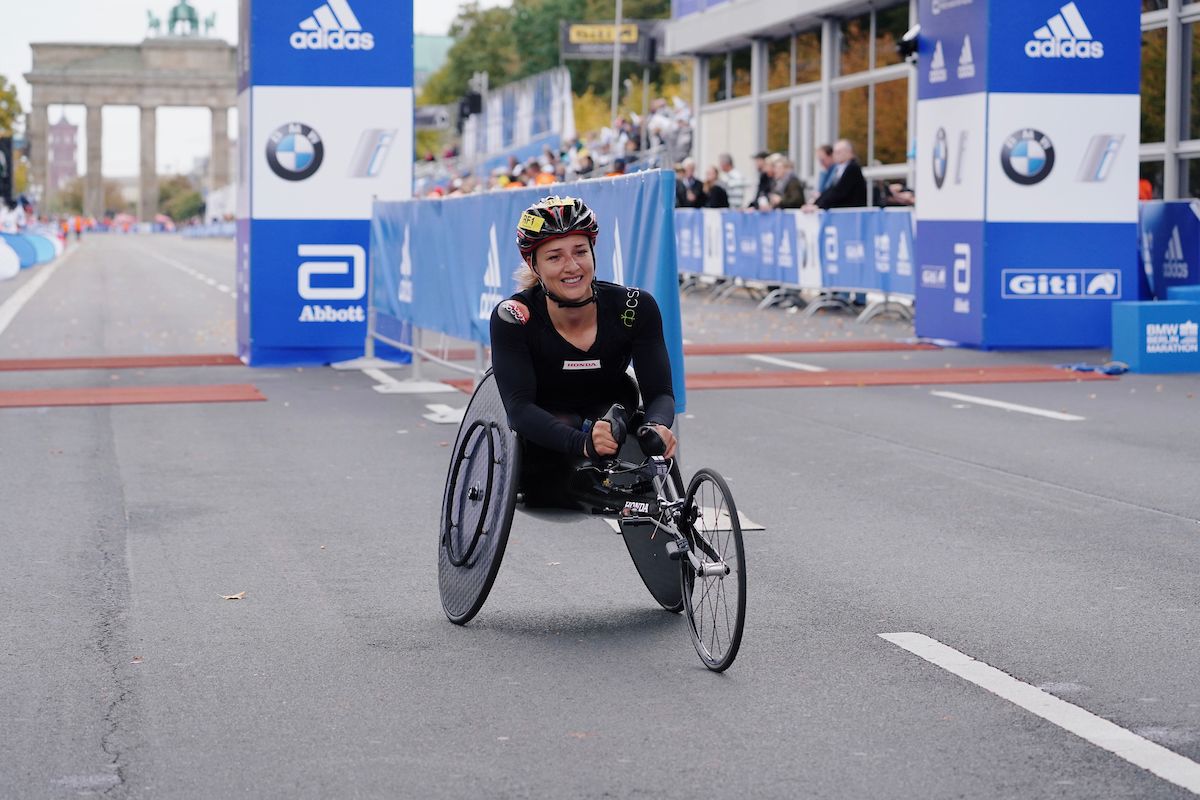
When she embarked on the defense of her AbbottWMM title, women’s wheelchair star Manuela Schär could not have dreamed what the following 12 months would bring.
What’s that hackneyed cliché we hear from athletes more often than we’ve had hot dinners? One race at a time?
Well, one race at a time, the 34-year-old from the mountainous Swiss town of Kriens, climbed a little higher, then higher still, then even higher, until at the finish line of the 2019 BMW BERLIN-MARATHON on September 15, she was surveying all beneath her, having conquered each and every race of the series.
She was not done yet for 2019.
Series XIII of the Abbott World Marathon Majors came quickly into view with the Bank of America Chicago Marathon and TCS New York City Marathon taking place in the space of two weeks. Schär took them both down, went home for a brief rest, then boarded a plane to Japan to compete in the Oita International Wheelchair marathon.
There, she shattered her own world record, clocking 1:35:42. The two athletes behind her also came in under her previous mark.
There have been dominant teams and individuals through history who raise the bar of what’s possible. Rugby’s All Blacks dragged the standard of the game with them. There’s no Rafa Nadal or Novak Djokovic without Roger Federer. Tiger Woods changed golf and Michael Jordan took the sport of basketball on to new heights.
Schär deserves to keep this kind of company. She’s doing it better than everyone else, and it’s up to them to find out how.
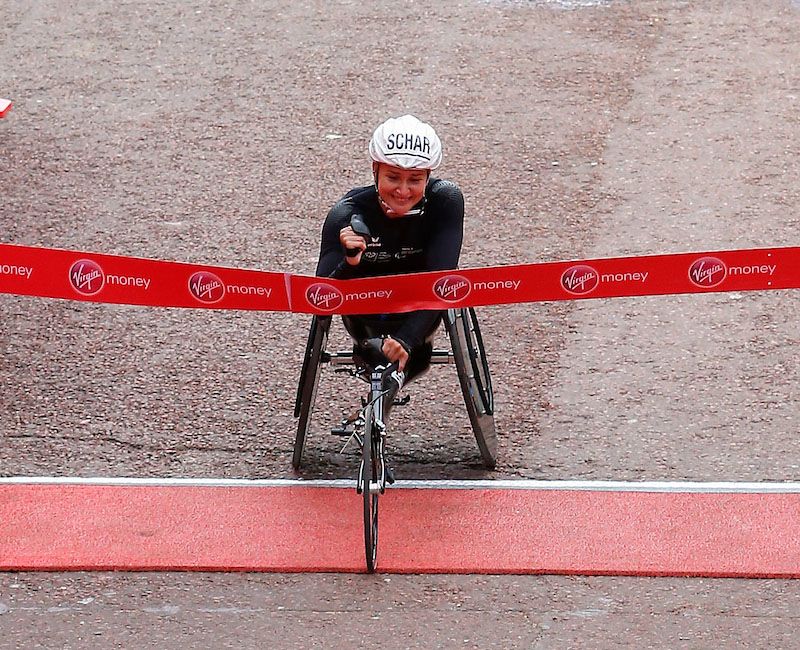
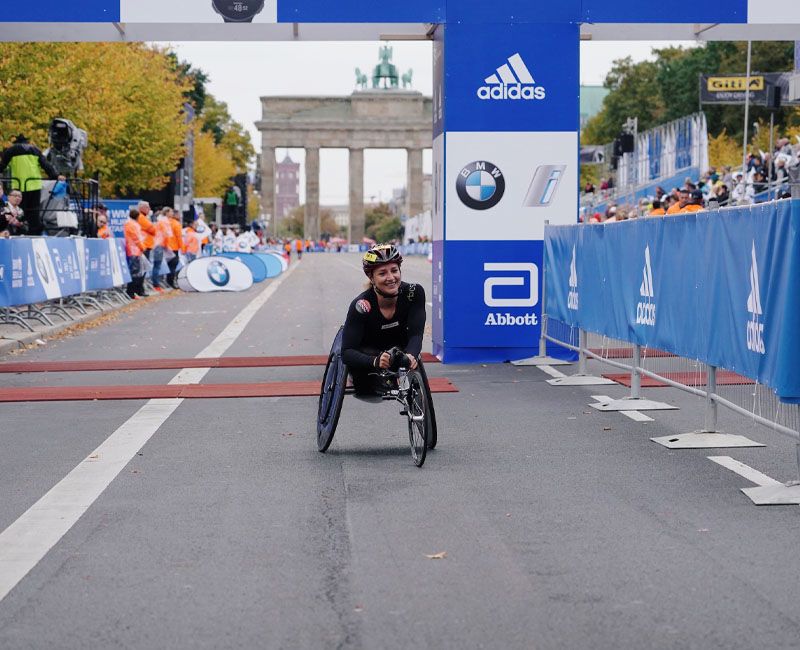
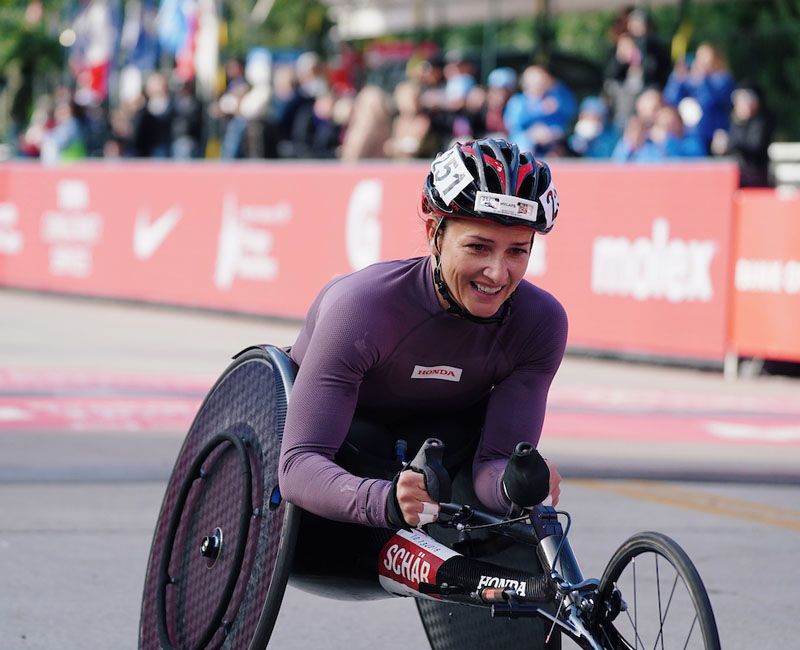
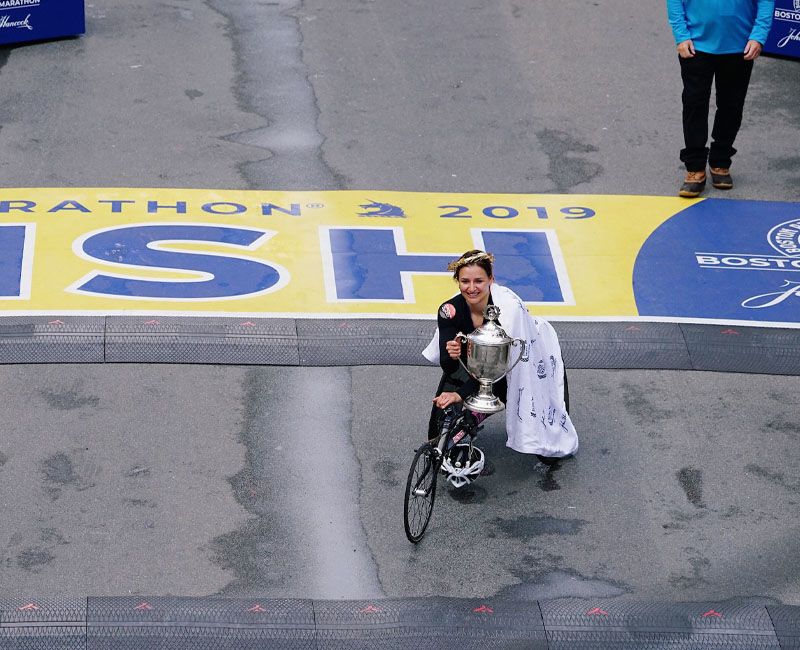
3. Romanchuk: the boy becomes king
Youngest ever series champion is crowned
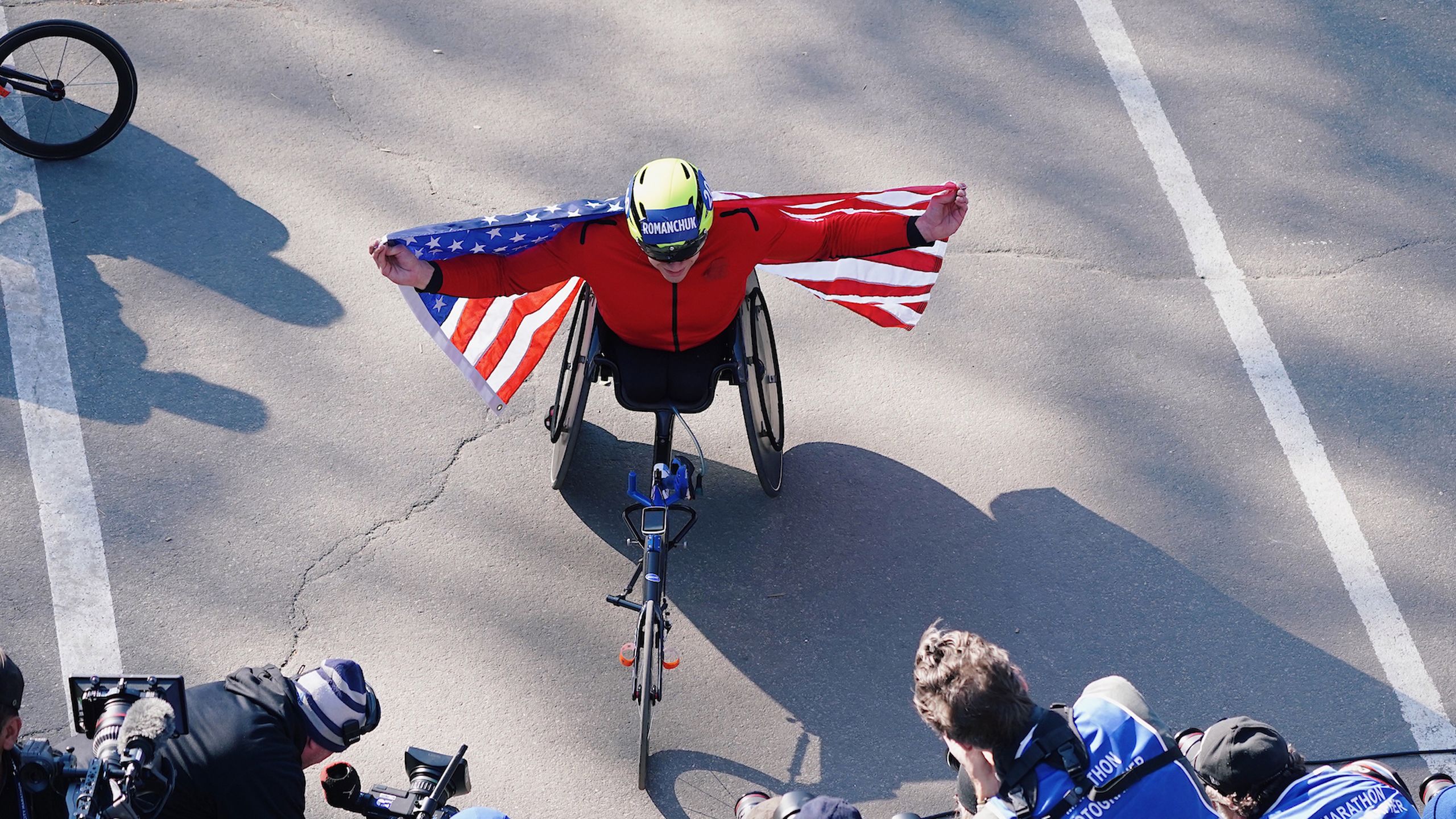
The rolling cornfields surrounding Champaign, Illinois produce more than just the staple food source that keeps America going.
On any given day you’ll see a squad of the world’s finest wheelchair athletes grinding their way past these fields under the watchful eye of a coach so experienced, he probably thought he had seen it all.
Adam Bleakney’s record of fostering champions on track and road from his facility at the Univeristy of Illinois bears no comparison.
The great Tatyana McFadden spearheads a coterie of champions across track and road distances to have come out of this mid-western hotbed
And yet when you get Bleakney on to the subject of his latest protégé, even he struggles to put into words what Daniel Romanchuk could go on to accomplish.
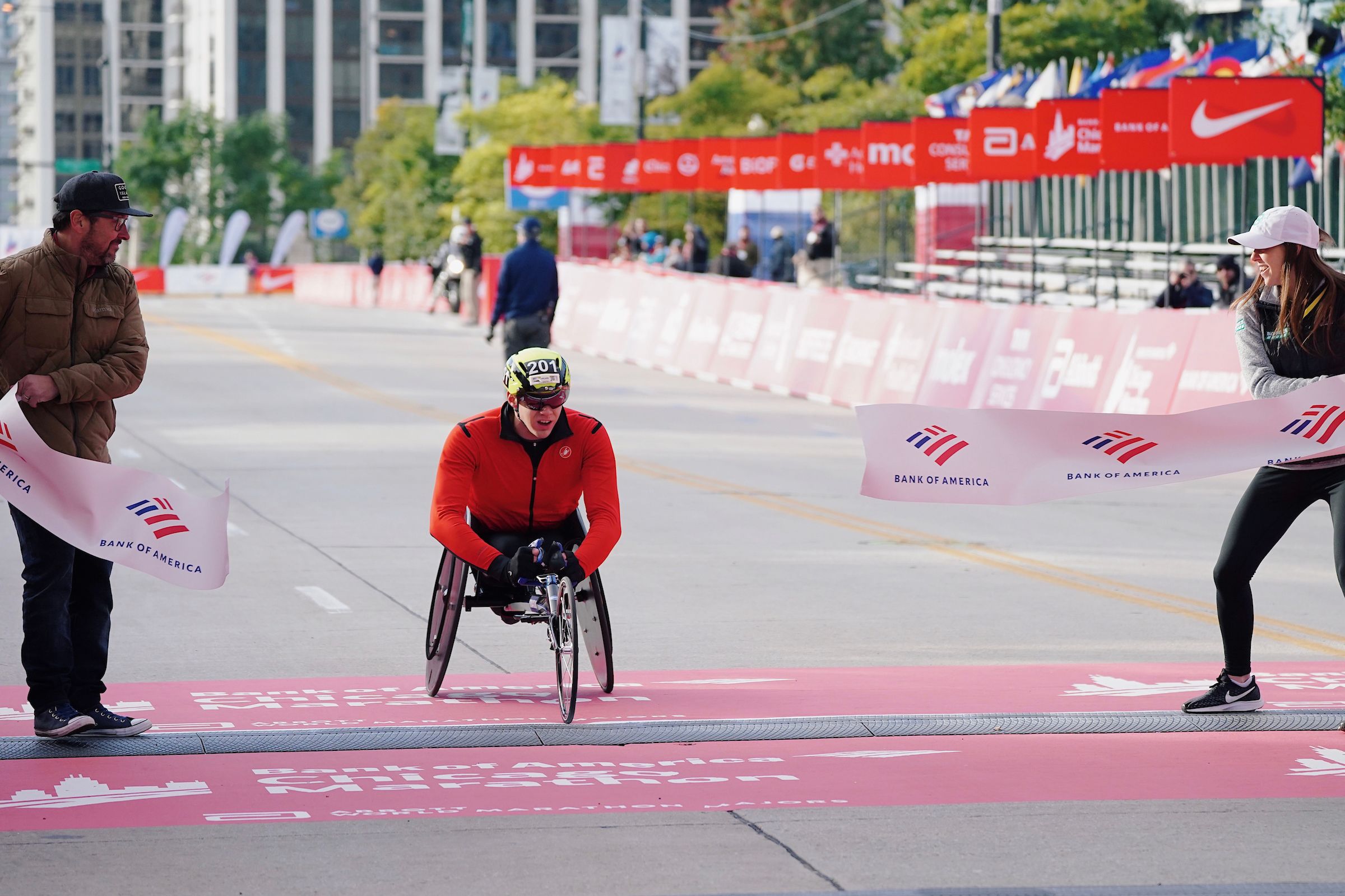
This year the trophy cabinet began filling up rapidly.
The 21-year-old wrapped up his first AbbottWMM series with wins in Boston and London, adding to victories earlier in the series in Chicago and New York, to become the youngest ever series champion – in either the open or wheelchair racing categories.
He backed his form up by winning the 2019 renewal of the Bank of America Chicago Marathon by over three minutes, and then out-powered three other men in a sprint for the line in New York to retain that title too.
2020 promises much on road and track for a young man who seems to have the world in his enormous hands.
Daniel Romanchuk has arrived.
4. Kosgei makes history
World record smashed
in Chicago
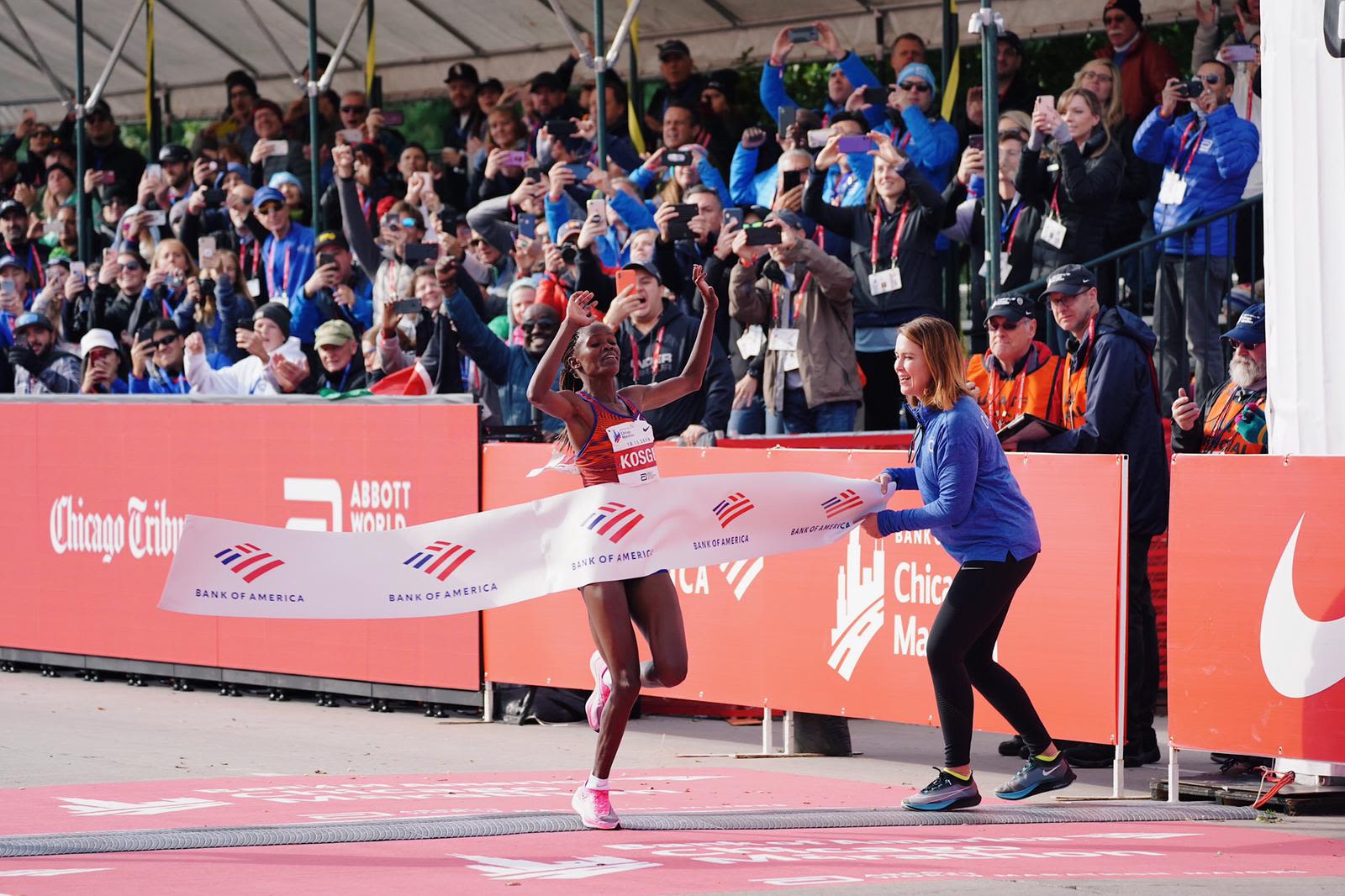
Records, they say, are made to be broken.
But there are a few that stand for so long that we begin to wonder if they are just too far out of reach.
The temperatures, the wind direction, even the way someone got out of bed that day have sometimes combined to produce a performance that could take a lifetime to topple.
That was how Paula Radcliffe’s mark of 2:15:25 had come to be viewed as the years following 2003 became a decade, then 15. Then along came Brigid Kosgei.
Little track pedigree, a mother by the time she was 23, this introverted, slight character from Kapsait in Kenya began her marathon career with an inauspicious 2:47:00 in Porto.
It was the first and last time she didn’t claim a podium spot in her marathon career to date.
Kosgei quietly went about improving, running against faster women, then beating most of them.
Then in 2018, she made her AbbottWMM breakthrough in Chicago with her first victory. She followed that with another fine win in London, but no one foresaw what she would do next.
Just a fortnight before the 2019 Bank of America Chicago Marathon, a wry, knowing grin spread across the face of Executive Race Director Carey Pinkowski as he talked about what was to come in his home town.
The longest-sitting figurehead in the Abbott World Marathon Majors family has seen a few records tumble in his time, and he could sense another day for the ages was on the breeze in the Windy City.
His senses were spot on.
Setting off at a blistering speed, Kosgei took Radcliffe’s record to pieces, stopping the clock in 2:14:04 to make history.
At just 25 years of age, Kosgei’s incredible performance could just be a taste of the things to come from a woman who has raised the bar for women’s marathon running in much the same way Radcliffe did all those years ago.
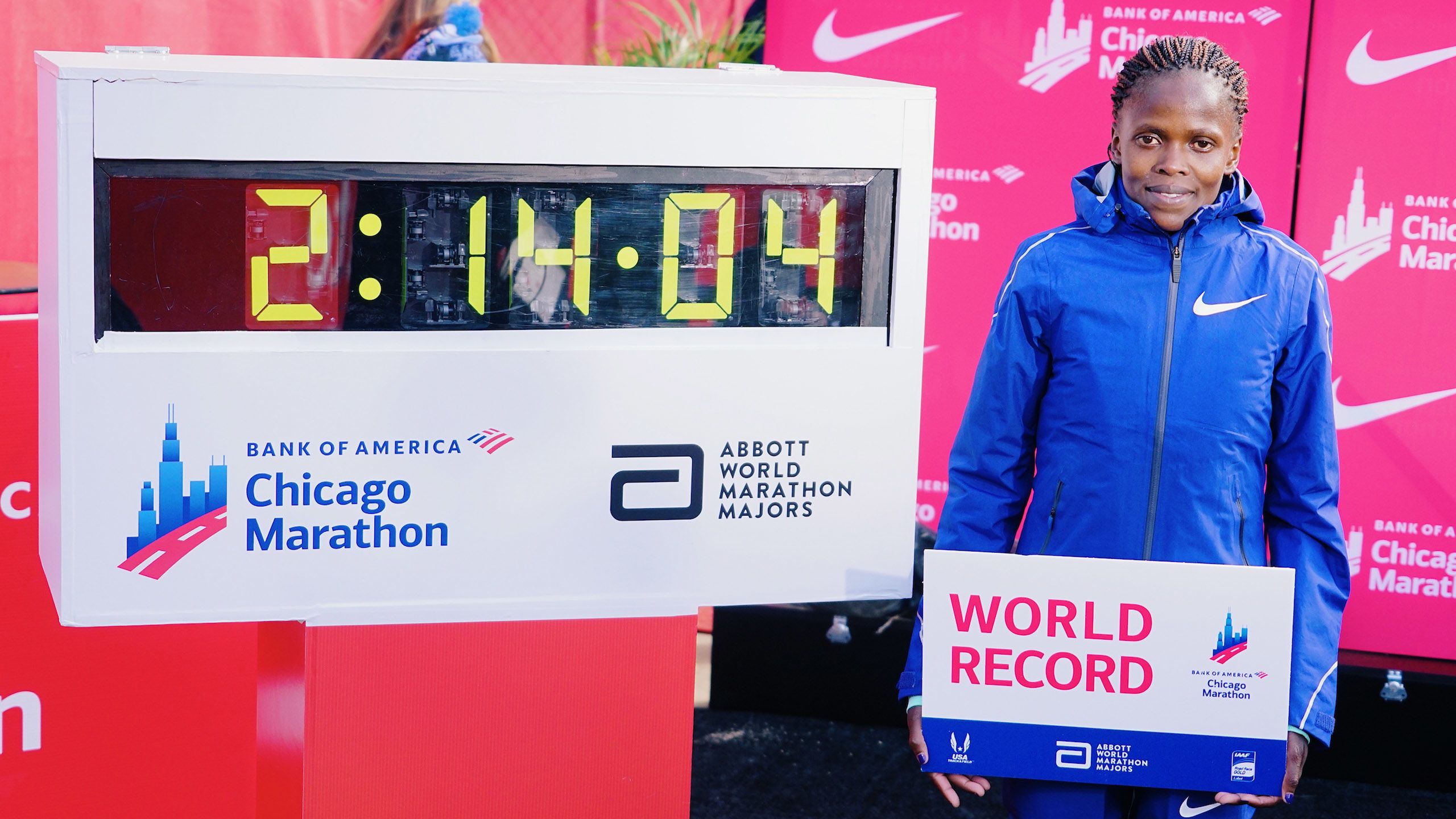
5. Kipchoge
Kenyan waltzes into
immortality in Vienna
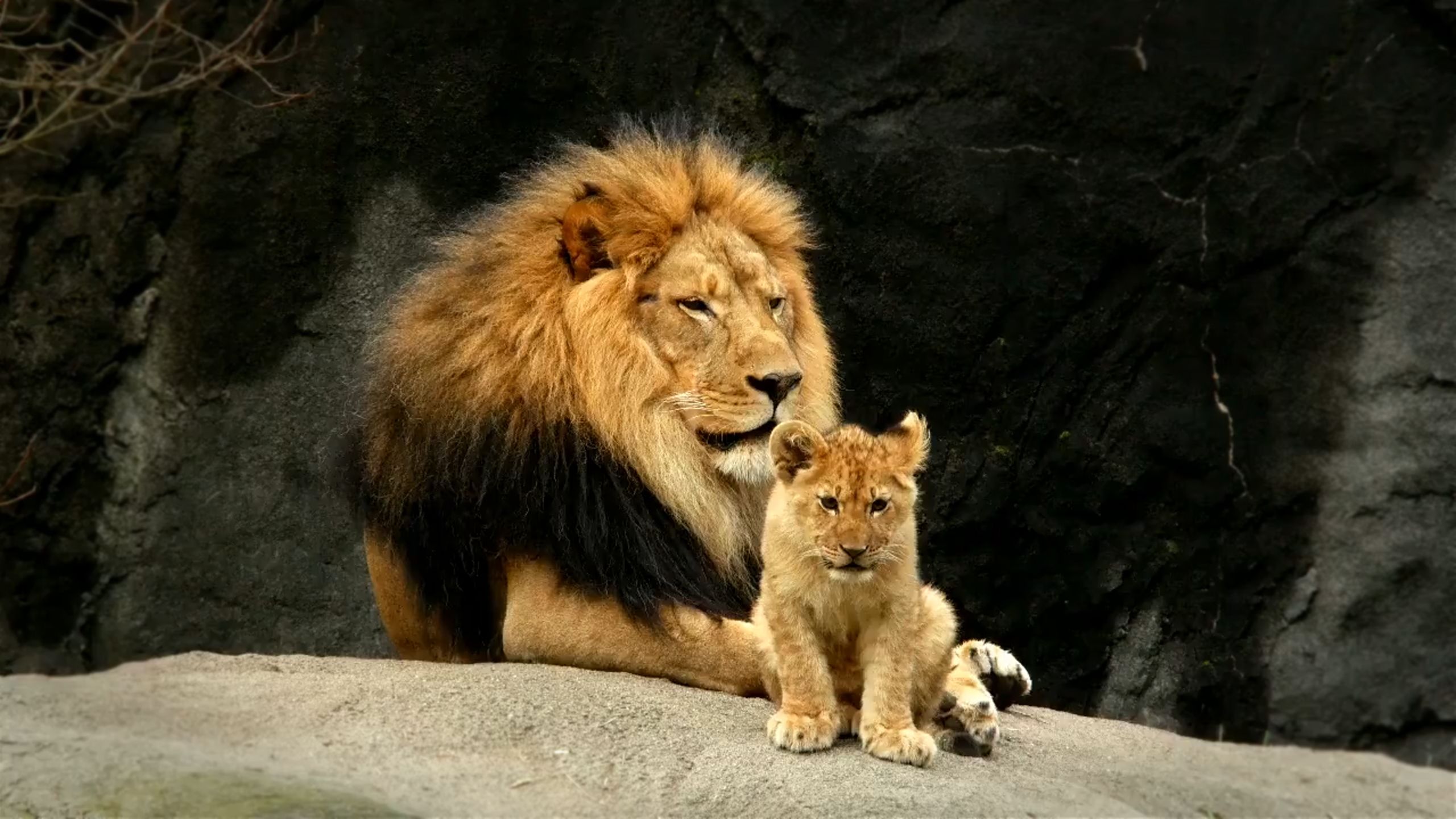
Eliud Kipchoge had already had a year to remember. Having smashed his own course record at the Virgin Money London Marathon in April, the king of the 26.2-mile distance was confirmed as champion of the Abbott World Marathon Majors for a fourth consecutive time after the conclusion of Series XII at the 2019 BMW-BERLIN MARATHON.
But with the world record, the Olympic title and all those Majors victories safely in his trophy cabinet, one challenge had yet to be conquered by the Kenyan legend.
He had tried and narrowly failed to breach the two-hour barrier in 2016, clocking 2:00:25 in Monza.
But at his second attempt, this time on the pan flat circuit in Vienna’s Prater park, he was not to be denied. Under the banner of the INEOS 1:59 project, chaperoned by an army of pacemakers on the 4.5-mile loop, Kipchoge scorched his way to an astonishing 1:59:40.
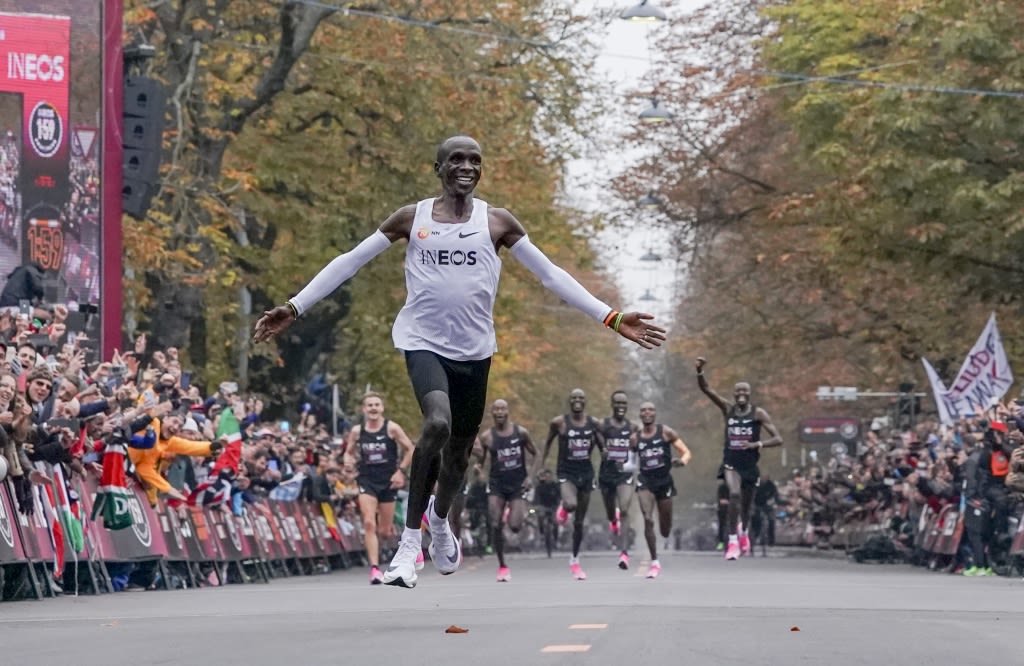
Despite not being recognized as the official world record – the 2:01:39 he set in Berlin in 2018 holds that title – the time stands as the fastest any human has covered 26.2 miles and it captured the imagination of the watching world.
Each of us will remember where we were when Eliud Kipchoge changed the game.
6. Cherono wins a sprint for the ages
If Kipchoge’s sub-two triumph was a carefully produced sporting record attempt, we witnessed theatre of an altogether more visceral nature in the final strides of the 2019 Boston Marathon.
As they turned for home onto the famous Boylston Street, Lelisa Desisa and Lawrence Cherono were still measuring one another with the iconic blue and yellow finish coming into focus.
On they went, stride for stride, the pace ratcheting up with each step until the pair were in a desperate sprint for the line.
It was the former Boston champion versus the unheralded challenger, Ethiopia against Kenya, the reigning New York champion against a man with no major to his name.
The smart money would have been flooding in for Desisa – the man who gifted his winner’s medal to the city in 2013 as a mark of respect following the horrors that occurred on the stretch of road he now found himself fighting to proclaim his own once more. They jousted, elbow-to-elbow, with the roars of the packed streets ringing in their ears.
With perhaps no more than 10 metres left, the look on Desisa’s face told us more than thousands of words ever could. A crack in the façade, a fissure in the granite, a baring of the teeth that said: “I’m at my limit.”
Cherono couldn’t look, but he could sense it, and he pounced, lengthening his metronomic stride as the man who had been glued to his side moments ago was finally cut loose.
It was Kenya’s day by the thinnest of margins, and everyone who witnessed it was left breathless. Sport has no equal when it serves up such drama.
